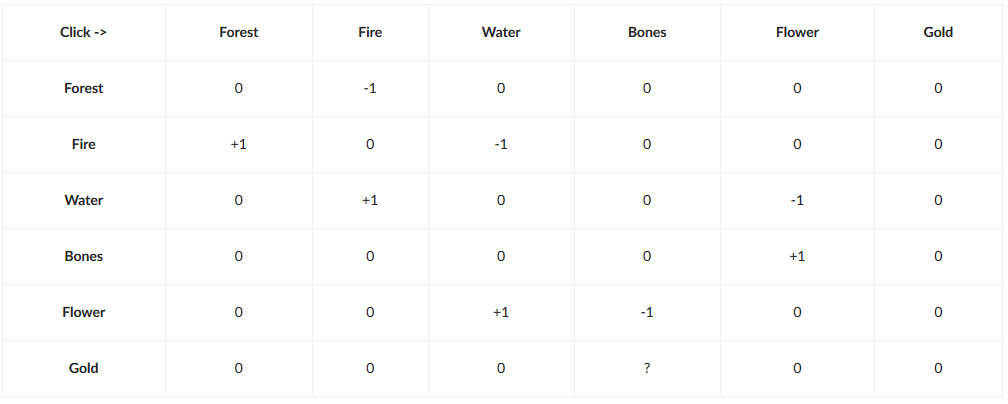From what I played this feels pretty interesting. I made a table of interactions which I'm including and built bc it demonstrates what I feel is something kinda missing. All the actions with zero at the intersection feel a little.... empty? Balancing things that interact in a destructive or constructive way is really interesting, but since they do that on one dimension I can understand not wanting to make all of them interact in that way. Have you considered other dimensions for them to interact on? For instance you could have ones with zeros impact the gold click reward up and down, so you could for instance click water next to bones, and now bones cost down to -2 gold to click, or forest next to flower increasing the gold click of flower up to 4. Dunno maybe that's not an interesting vector. The other I was thinking about is spreading, so maybe ones that don't interact with neighbors replace them with a 1. So click bones next to fire and it replaces the fires with bones, but if there were flowers they grow. Sorry if any of this is unwelcome, just thinking outloud mostly :) Look forward to seeing where this goes!


